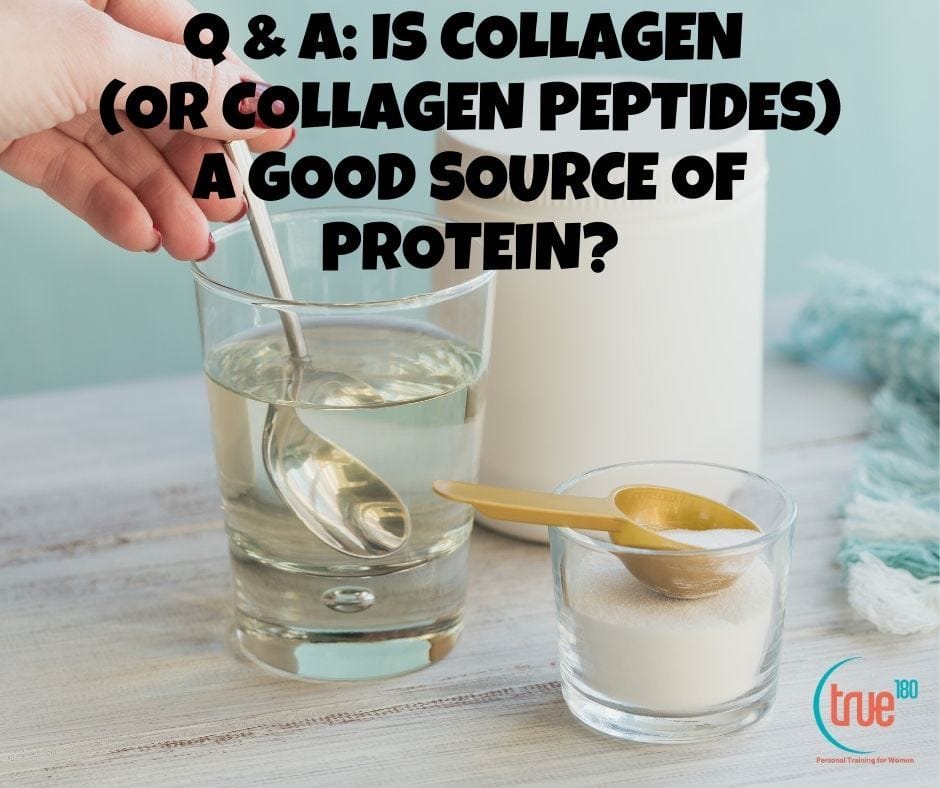Q & A: Is collagen (or collagen peptides) a good source of protein?
A: No. Collagen, surprisingly, is a very poor source of protein – much lower availability than most plant sources. However, high quality collagen supplements have a positive impact on your skin and joints. In short: get your extra* protein from something like whey, or a high quality plant-based product, and use a smaller amount of higher quality collagen for your skin and joints.
*When I say “extra” here I mean above what you get from food, not excess. Most women need about 90 grams of protein per day, and it is very hard to live in a sedentary society and get that much protein and stay under your calorie budget. Having a low calorie source of concentrated protein (like protein powder) is actually essential for most women (and men).
Protein Availability
Protein availability is a measure of how readily your body can absorb and use the protein source. The availability of a protein is based on it’s building blocks, which are amino acids. There are 9 essential amino acids. Essential means our bodies can’t make them, and must get them from food. And there are 7-ish conditionally essential amino acids, which means your body can make them, but not very well, and things work better when we eat them.
If a protein source has the right amount of all the essential amino acids it is easy for your body to put all of it to work. If a protein source is low in 1 amino acid, then that 1 will limit the usefulness of the protein as a whole. This is probably far enough down this rabbit hole to make the point. On the 2 scales of protein availability in use today (PCDAAS and DIAAS) collagen gets a 0 on both.
Collagen gets a 0 because it is completely lacking in tryptophan, which is an essential amino acid. This is with hydrolyzed collagen, which is the more digestible form, which means it gets a 0 under the best conditions.
For comparison, whey protein isolate gets 100 and 109 (out of 100), soy protein isolate gets 98 and 90, and you can see the rest here.
Bottom Line
Collagen has benefits for your joints and skin. At the same time, collagen makes a poor protein supplement. The best course of action would be to take a smaller quantity of a higher quality collagen supplement, and to get your protein from other sources: a high quality whey source, egg if you have a dairy allergy, and/or plant-based.
Questions about:
· How much do you need? Is all protein created equal?
· 20 Ways to Get 20 Grams of protein for under 200 calories.

